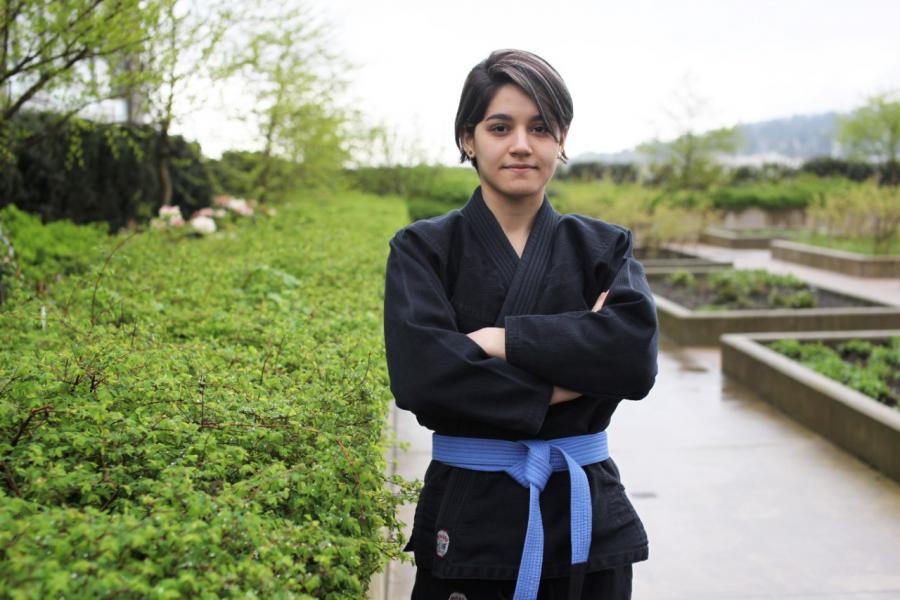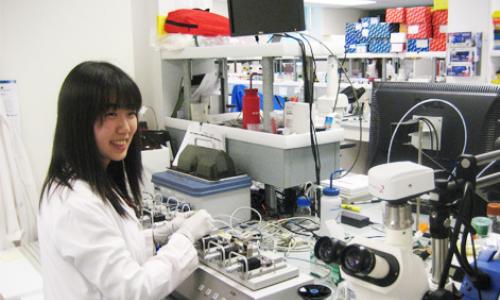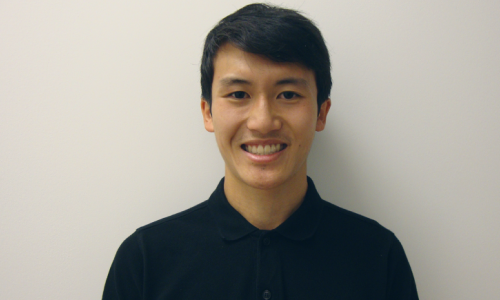
This article was originally published on SFU News on October 3, 2017.
Just days after defending her master’s thesis in July, Zahra Haeri was en route to her “dream job” in Markham, Ontario. The Mechatronic Systems Engineering graduate had landed a job as a control systems engineer at General Motors several months before graduating. The 24-year-old, who arrived in Canada from Tehran a little over two years ago, is part of a team working on developing the company’s Cadillac Super Cruise car, touted as the industry’s first, true, hands-free driving technology for the highway.
“It’s an amazing opportunity to be working at the headquarters of a major automotive company and having an impact on this advancing field,” says Haeri. “I initially interviewed for a co-op job, but in the end, they offered me a full-time, permanent position after graduation.
“I was in the post office when I got the news. I was so happy, I wanted to hug the postman.”
Haeri traces her interest in automotive companies like General Motors back to her childhood growing up in Iran, where she helped her engineer father at his manufacturing company, and spent her free time reading car specs.
“I remember one article that made a big impact on me—it was about the head designer of BMW,” says Haeri. “He was also Persian, and that made me so proud. I thought about how much I would really like to work for a big car company someday.”
Haeri worked hard to improve her English after arriving in Canada, then sought to develop her interests in both automotive and biomedical engineering.
In addition to her studies and lab work, she found common ground between engineering and jiu-jitsu, a popular self-defence technique.
“Jiu-jitsu is a physical sport, but it’s also a mental art; for many of the techniques, you need to understand human body mechanics,” she says.
Haeri didn’t intend to pursue the sport competitively, but as she excelled, she wound up in contests that led to a gold medal at the Copa Katana Brazilian Jiu-Jitsu tournament, a silver from the Western Canadian Martial Arts Championships and several medals from local competitions.
But toughness on the mat is just one part of Haeri’s story.
At SFU, she worked with a team led by professor Farid Golnaraghi to develop an optical diagnostic probe capable of more safely and non-invasively detecting early-stage breast cancer.
“As a woman, there is a connection between my feelings and our research in breast cancer,” says Haeri, who worked on the study’s data analysis portion. “I know this could affect me or someone I know someday, and this guides my research in a positive way.”
Besides working with the General Motors team Haeri plans to continue with her martial arts training—and eventually pursue a PhD in business, another of her many passions.
Beyond the Blog
-
To learn more about co-op opportunities for Mechatronic Systems Engineering students, visit the Engineering Science Co-op homepage.














